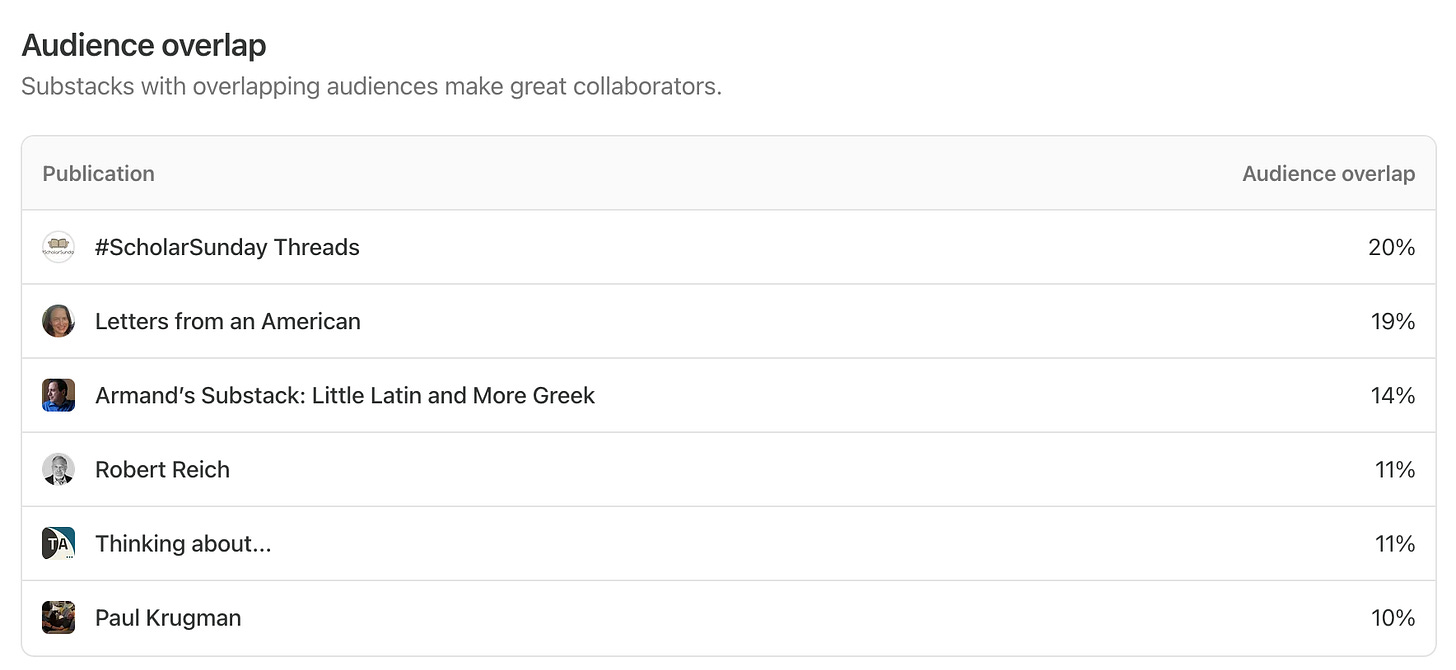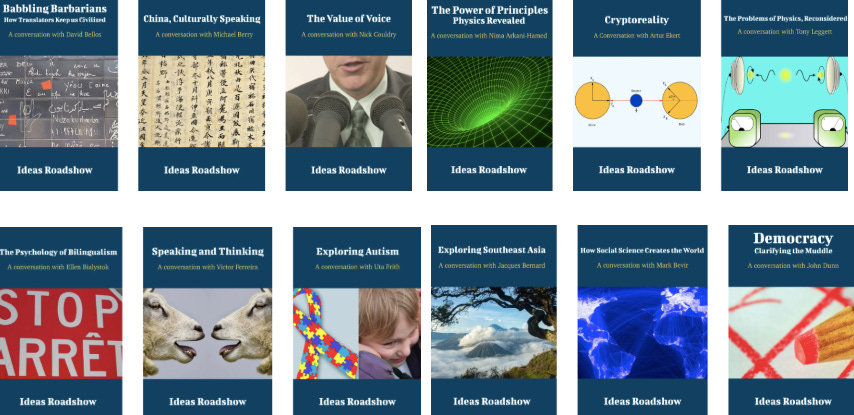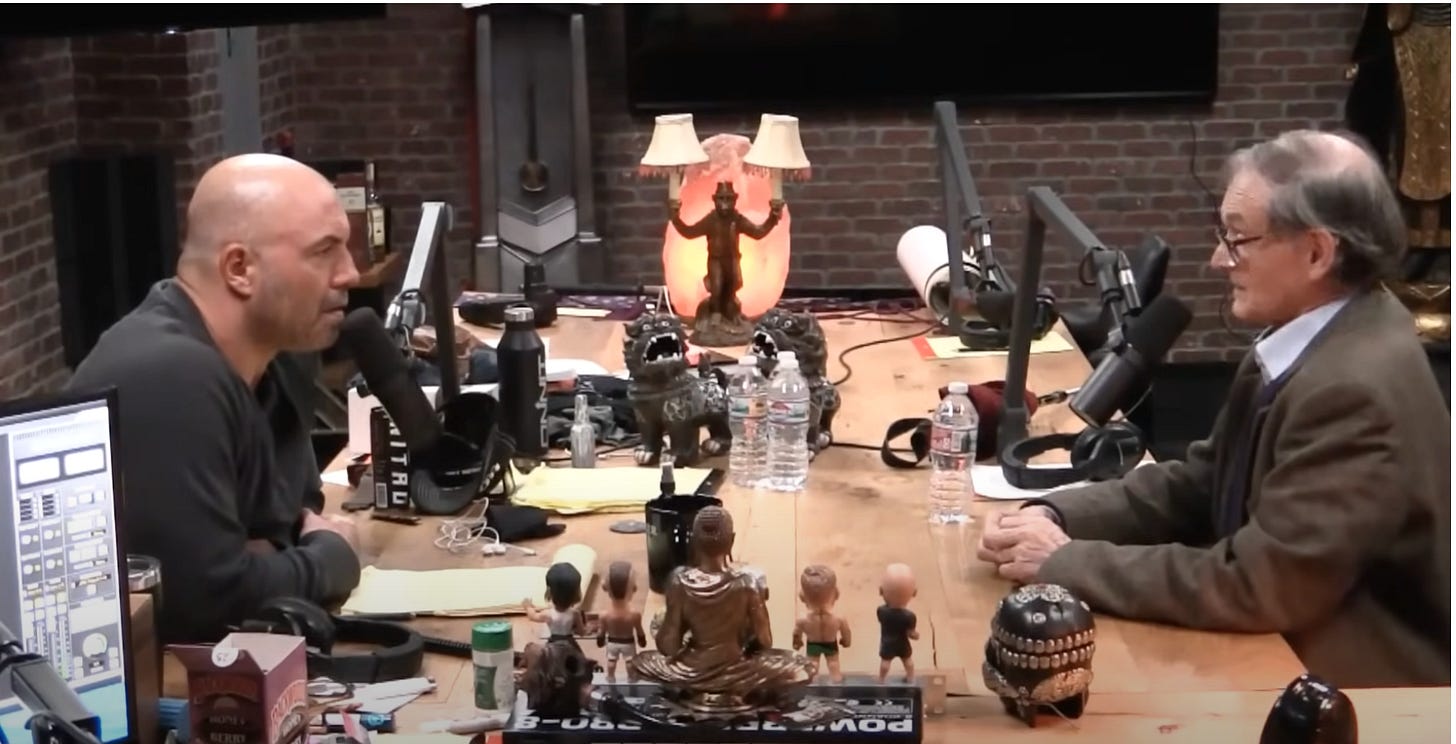The Power of Breadth
More things in Heaven and Earth, Horatio...
The astute reader will have surely noticed by now that, just like its Ideas Roadshow parent, this Behind The Lens substack often careens wildly from topic to topic.
I began in July with a series of articles (America’s Descent) giving my own heartfelt take on the shockingly rapid moral decline of the United States of America – a personal complement to my recent film, Descent: How America Lost Its Mind, Soul & Moral Compass. It turned out – much to my surprise (and, frankly, dismay) – that I needed 15 separate pieces (14 articles and a 25-minute excerpt from the film) to fully convey my horror at both what was happening and what I perceived to be the often hugely inappropriate reaction to it by so many.
This was deeply unfortunate in many ways, both personally and professionally.
On the personal side, not only did doing so require me to pay substantially increased attention to what might generously be called “current events”, wading into the appalling miasma of hitherto unthinkable immorality and massive irrationality on a painfully regular basis, but I consequently found myself becoming steadily, inevitably, exceedingly self-righteous.
This is never a good thing for anyone, and particularly not for me. It’s not that I generally shirk from having a strong point of view, and I’ve long maintained that a necessary requirement for writing any essay worth reading is the adoption of a clearly enunciated and coherent position. But I’ve always believed that the development of any such overarching thesis necessarily involves a long process of studied research and reflection so as to carefully plumb the nuances of all aspects of the issue. And then there’s the undeniable fact that by far the most memorable and truly interesting exchanges are those that result in you changing your mind.
Meanwhile, if there’s no conceivable, reasonable counter-argument to the subject at hand that could somehow be presented, surely that means that you’ve somehow wandered into the crackpot world of contesting the intuitively obvious, which is undeniably a thorough waste of time. That’s why reasonable people don’t spend hours “debating” neo-Nazis or constructing detailed arguments as to why socially disadvantaged children shouldn’t be exterminated.
But sadly, that’s precisely where we seem to have landed when contemplating today’s United States of America: the domain of the unquestionably, incontrovertibly, pathetically obvious. Suddenly, a place I’ve long respected as the primary global repository of so many inspiring centres of top-level human achievement, has spontaneously imploded in the ugliest, stupidest and most profoundly superfluous way imaginable.
So you say something. You make a film and you write some essays. You angrily point out the mind-numbingly self-evident from your private outpost in the wilderness in the hopes that, against all the instincts bellowing in your brain, somehow it will make some sort of a difference to someone, somewhere. And on top of everything else, you find yourself becoming an irredeemable bore.
And then, to make matters even worse still, it slowly starts to dawn on you that you’ve gone a considerable distance towards pigeonholing yourself.
By launching our shiny new substack with a thrice-weekly bombardment of articles investigating America’s sudden lurch towards an authoritarian dystopia, I unwittingly went a considerable distance towards positioning myself as a new, unheard of, wannabe version of Timothy Snyder, Paul Krugman, Robert Reich or Heather Cox Richardson – as transparently reflected in substack’s statistics informing me that it is precisely those people who represent the primary sources of “audience overlap” with Behind the Lens subscribers, three months (and a good many other pieces) later.
Trying to muscle one’s way into this vigorously crowded space would be a nigh on impossible feat for an unknown outsider determined to unwaveringly focus on the systemic destruction of American values, but challenge-lovers that we are, we opted to set the bar even higher still, perversely devoting our first five weeks to a painstakingly detailed analysis of America’s dispiriting descent before abruptly switching gears to talk about a range of completely different topics: the legacy of John Elliott, image copyright in the world of international museums and Renaissance art (including a concentrated month-long plunge into the world of Sofonisba Anguissola).
Any impartial observer, I well recognize, would be forgiven for concluding that we seem determined to commit professional suicide (albeit in an original and energetic way).
So allow me to explain.
What Ideas Roadshow is all about, what we’re dedicated to above and beyond anything else, is the sincere conviction that the world is a fascinating place, and that not nearly enough attention is given to the many wonderfully captivating ideas and concepts out there that we believe can be accessibly packaged for a broad, general audience.
That is why I’ve held long-format filmed conversations with a large range of experts, from social psychologists to mathematicians to cell biologists to medieval historians. I’ve talked to astronomer Jill Tarter about the search for extraterrestrial life, marine biologist Edie Widder about bioluminescence, archaeologist Andrew Wallace-Hadrill about Herculaneum, author Pankaj Mishra about Buddhism, historian Margaret Jacob about the Industrial Revolution, Andy Hoffman about business schools, Emilie Hafner-Burton about human rights, Nita Farahany about the overlap of neuroscience and law, Frans de Waal about bonobos, Janko Tipsarevic about the life of a professional tennis player, Diana Deutsch about musical illusions and Artur Ekert about quantum computers (to name but a few).
And that is why I’ve made feature-length documentaries on a range of topics, from real-time responses to the COVID-19 pandemic, to the cultural history of chess to Botticelli’s Primavera.
The America thing, the whole Descent business, is actually something else entirely. I did it because I simply couldn’t help myself: not commenting upon what is happening in the US right now would be like living in Berlin in 1936 and calmly beavering away on a new translation of Machiavelli’s The Mandrake (see, Machiavelli was also a playwright – isn’t that cool?).
There are times when “the real world” (for lack of a better phrase) necessarily intrudes, and we feel obliged to roll up our metaphorical sleeves and plunge headlong into the swiftly rising toxic sludge on all sides of us, if only to convince ourselves that we’ve at least tried to do something when the world suddenly turned overwhelmingly to crap.
But that is, of course, a relatively recent thing. A primary challenge Ideas Roadshow has been facing ever since we began over a decade or so ago is something quite different entirely: trying to find a way to broadly stimulate a world lurching towards an unprecedented level of personal specialization.
How on earth do you get the message out that there are many new, wonderfully captivating things around that people would surely be interested in, when everyone’s primary way of engagement with the world is through ever-focused algorithms based upon their previous choices?
It can be pretty dispiriting, I have to tell you – and all that well before taking into account the all too predictable repercussions of my uncontrollable urge towards Descent-related substack typecasting.
But despite all of that, there are still reasons for hope that the pendulum might yet swing back from our steadily narrowing of interests, that at some point we’ll get fed up with being continually presented with the same old stuff and find ourselves hungry for not only new perspectives on the same old topics, but entirely new and captivating ideas that we’ve never been exposed to in the first place.
And technology, ever the double-edged sword, can certainly help there too.
The principal reason we’ve decided to spend increasing amounts of time exploring the world of art these days, for example, is that current advances in camera and editing technology now make it much easier than ever before to create a wealth of visually-rich films to stimulate non-specialists with captivating tales of beauty in this increasingly unbeautiful age.
Because, happily, there are subtle straws in the wind indicating that the tide is slowly turning, that people are starting to hunger for different types of stimulation. You just have to know where to look.
The other day, while ruminating on Kurt Gödel and his ongoing legacy for a documentary project I’m currently pondering, I stumbled on a clip of Roger Penrose discussing the conceptual implications of the Incompleteness Theorems to a clearly enthralled Joe Rogan.
I have no idea how such a thing could have come to pass, what convoluted series of unlikely cosmic contingencies needed to be collectively aligned in order to arrive at the state where one of the greatest theoretical physicists of our age would be holding forth on subtle philosophical arguments against machine intelligence across from a wildly popular UFC colour commentator and former reality TV host who routinely engages with conspiracy theorists and peddlers of pseudoscience.
But it definitely happened (always assuming, of course, it wasn’t AI-generated). And throughout it all, Joe Rogan seemed positively enraptured.
So perhaps there’s hope after all?
Howard Burton






Hang in there. Telling people that the world is fascinating is also a political.act in these times.